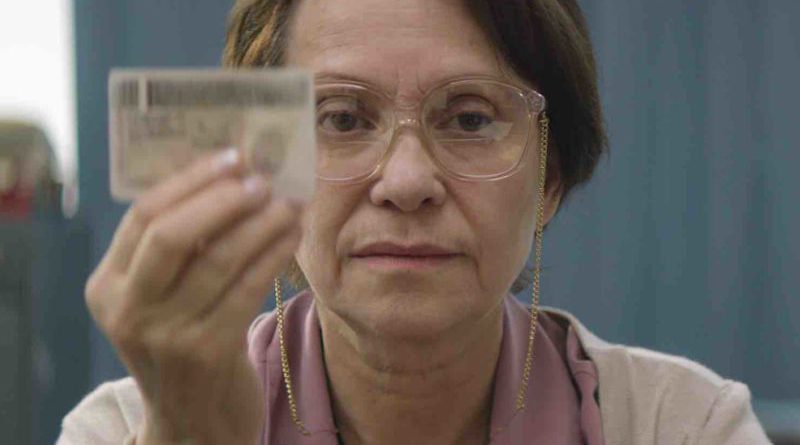REVIEW: ‘Everything Else,’ now streaming
Photo: Adriana Barraza stars as Doña Flor in Everything Else (Todo lo Demás), now playing. Photo courtesy of Cinema Tropical / Provided with permission.
There is something exquisite to find in the simplicity and somberness of Everything Else (Todo lo Demás), the recent film from director Natalia Almada. The 90-minute feature, which is now available to stream through the Cinema Tropical Collection, tells the story of Doña Flor, a bureaucrat in Mexico City who doesn’t receive much satisfaction from her job or her life. She is stuck in such a monotonous routine, with every single day being the same, that she doesn’t know what to do with herself.
Playing Doña Flor is the great actor Adriana Barraza, star of Amores Perros and Babel. She will go long stretches in the movie without saying a line of dialogue, yet her performance is riveting in its quietude and contemplation. She is portraying a character who ponders a lot and seems unable to break from the bonds of the bureaucracy that simultaneously suffocates her and the clients who seek help at her desk.
[Read Hollywood Soapbox’s interview with director Adriana Barraza.]
The only motivations in life come from her cat, which she keeps in a small, simple apartment, and her ability to enforce perfection at the identity-card office where she works. If any of the patrons sitting before her makes a mistake, she sends them to the back of the line for another hours-long wait. When they protest, she sits still and repeats that the process is the process, and no one is above the process.
One wonders while watching Doña Flor in this office setting whether she intentionally causes trouble for some of these patrons. One man is rude to her, never looking up from his smartphone, and, lo and behold, she finds there’s a discrepancy in two signatures on his paperwork. The audience is led to believe that she could have looked the other way over such an infinitesimal mistake, but because this man has been preoccupied with everything and everyone but Doña Flor, she exacts her revenge.
Or maybe not. Maybe she is sticking to the rules and unable to bend, even a centimeter. Not knowing exactly what’s in her mind is one of the joys of watching Everything Else.
Eventually there comes a form of escape for the central protagonist. She is a member of a local pool, and she takes part in classes and free swims. However, increasingly she has been unable to jump in the water with her fellow swimmers. Perhaps she realizes that she doesn’t have any friends or family, no one to share her life with. Perhaps she realizes that she is disconnected from the world and her sole human interaction is through her mind-numbing work at the office. Something prevents her from taking the plunge.
Almada’s script doesn’t give away too much, which is a good thing. Instead, she relies on this central performance from Barraza, and what a performance it is. Physically she imbues this character with so many interesting qualities. She constantly is straightening her hair, applying makeup in the bathroom, opening and closing her purse — seemingly out of nervousness or force of habit. She only lets her guard down behind closed doors, around her cat and in the lonesomeness of her apartment.
Then there are the stares. Often Doña Flor stares into the distance, constantly wondering about her allotment in life, perhaps considering where it all went wrong for her. How did she come to this government job? How did she become another cog in the machine? Is there a possibility of resurrection?
Everything Else says so much by saying so little, and that makes it a remarkable entertainment, a deep character study and a thoughtful rumination on finding one’s purpose in life. The audience cheers on Doña Flora, hoping she finds that spark of love and liberty.
By John Soltes / Publisher / John@HollywoodSoapbox.com
Everything Else (Todo lo Demás) (2016). Written and directed by Natalia Almada. Starring Adriana Barraza. In Spanish with English subtitles. Running time: 98 minutes. Rating: 


 Click here for more information.
Click here for more information.

